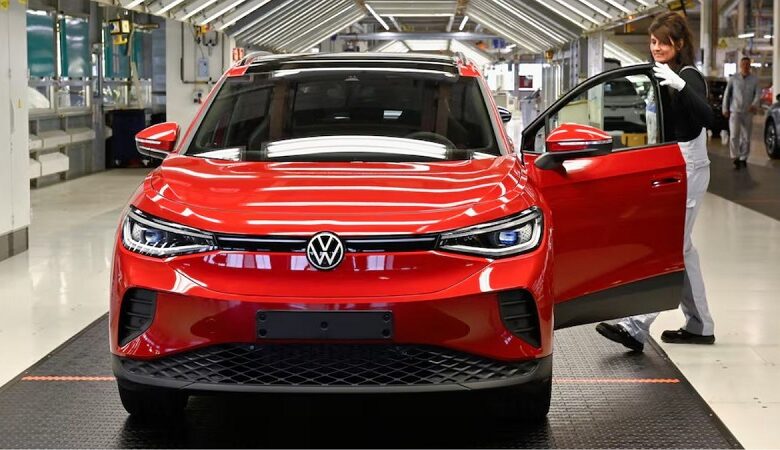Volkswagen Set to Develop Low-Cost Electric Vehicles to Compete with Rivals

News Mania Desk/Agnibeena Ghosh/29th May 2024
Volkswagen announced on Tuesday that it will develop low-cost electric vehicles aimed at competing with Chinese manufacturers, following the collapse of talks with Renault earlier this month. As Europe’s largest carmaker, Volkswagen plans to produce electric vehicles (EVs) for the European market priced around 20,000 euros ($21,746). This initiative is part of Volkswagen’s strategy to maintain its market position against fierce competition from Chinese automakers.
Volkswagen’s Chief Executive, Oliver Blume, emphasized the importance of the project, dubbed ID.1, as a commitment to Europe both as an industrial hub and as a consumer market. “It’s about entry-level electric mobility from Europe for Europe,” Blume said in a statement. “In doing so, we combine a clear commitment to Europe as an industrial location, a European industrial policy, and ultimately act in the interests of European customers.”
Chinese EV manufacturers have gained a significant cost advantage, often up to 30% over their Western counterparts, allowing them to aggressively expand into the European market. Volkswagen’s response involves a high degree of localization within Europe to reduce transportation routes for components, thereby cutting emissions and costs.
Volkswagen recently warned that the European automotive industry has a window of two to three years to prepare for the increasing competitive threat posed by Chinese carmakers. Failure to do so could jeopardize the sector’s survival. In line with this, Volkswagen is implementing 10 billion euros worth of savings and cost-cutting measures by 2026. Despite the low price point, Volkswagen brand boss Thomas Schaefer assured that the planned entry-level model would uphold high standards in technology, design, and quality, a challenge exacerbated by rising costs for energy, raw materials, and labor.
“One thing is clear: electromobility from Europe for Europe can only succeed with political support and competitive framework conditions,” Schaefer remarked, highlighting the need for a supportive regulatory environment.
The ID.1 project underscores Volkswagen’s strategy to remain competitive in a rapidly evolving market. By focusing on affordable electric mobility, the company aims to make EVs more accessible to a broader range of consumers while strengthening its position against Chinese rivals. This move is critical for Volkswagen as it navigates the challenges of transitioning to a greener economy while maintaining profitability.
However, the success of this initiative will depend on several factors, including political support, technological advancements, and market acceptance. The European Union’s regulatory framework and incentives for electric vehicles will play a crucial role in facilitating this transition. Additionally, consumer willingness to adopt new technologies and the infrastructure to support EVs, such as charging stations, will be vital.
In conclusion, Volkswagen’s plan to develop low-cost electric vehicles represents a strategic effort to compete with Chinese automakers and secure its position in the European market. The initiative highlights the importance of localization, cost management, and political support in driving the future of electromobility. As the automotive industry continues to evolve, Volkswagen’s commitment to innovation and sustainability will be key to its long-term success.






